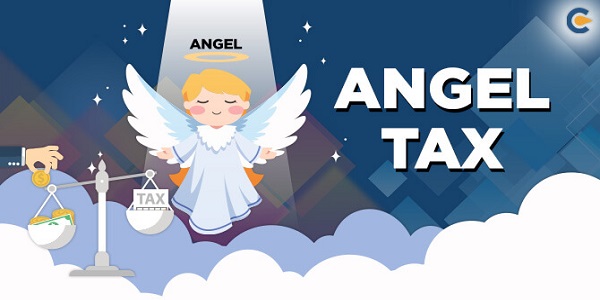Before understanding the concept of an Angel Tax, let’s know, who is an Angel?
Imagine a situation when you have a brilliant business idea but you do not have adequate funds to execute your idea and you look for different sources to fund your business idea. That’s where an investor comes in to rescue you from the funding problem and invests his funds in your vision, your idea, like an Angel. These investors are called Angel investors who invests their money to help new companies get off the ground.
What is an Angel Tax?
So now, after knowing the answer to ‘WHO?’ let’s look forward to what is an Angel tax?
Angel tax is the income tax payable by a company not being a company in which public is substantially interested (generally private companies), on the aggregate consideration received from a resident investor which is in excess of the Fair Market Value (FMV) of the shares so issued via off market transactions (provided the price of the share issued exceeds the face value of shares).
The excess consideration received is considered as an income from other sources in pursuance to section 56(2)(viib) of the Income tax Act, 1961 and is chargeable at the rate of 30% + 3% cess i.e., effective rate is 30.9%.

For instance, if your company receives an investment amount of Rs. 100 crores against issue of shares and the Fair Market Value of these shares is Rs. 50 crores, then the balance Rs. 50 crore shall be considered as excess amount or we can say the premium amount and shall be taxable at the rate of 30.9 %.
But, as per first proviso to section 56(2)(viib) of the Income tax Act, 1961, excess consideration received for issue of shares shall not be considered as Income from other sources in the following cases,
(i) by a venture capital undertaking from a venture capital company or a venture capital fund or a specified fund; or
(ii) by a company from a class or classes of persons as may be notified by the Central Government in this behalf.
In short, there is no Angel Tax to be levied in the above cases as consideration received in these cases does not considered as income under section 56(2)(viib) of the Income Tax Act, 1961.
Start-ups exempted from paying Angel Tax:
Angel Tax was introduced in the 2012 Union Budget by then Prime Minister Pranab Mukherjee to arrest laundering of funds. But the levying of Angel Tax at such a high rate i.e. 30.9% had a draconian impact on the Start-up ecosystem. A huge amount of investment which start-ups would have used for their growth was going in the hands of government and start-ups were left affected deeply.
That’s where the government in April 2018 came up with notification exempting the start-ups being a private company from paying angel tax @ 30.09%. Now, a private company which has been recognised as a start-up with the Department for Promotion of Industry and Internal Trade (DPIIT) is exempt from paying Angel Tax provided it complies with the conditions of exemption as notified by the DPIIT.
Conditions for exemption from Angel Tax
1. The start up must be DPIIT recognised.
2. The aggregate amount of paid up share capital and share premium of the start up after the issue or proposed issue shall not exceed Rs. 25 Crore.
While computing the above amount of Rs. 25 Crore, consideration received for issue of shares to the following shall not be included:
a. A Non-Resident person
b. A venture capital company or venture capital fund Specified company (listed companies whose shares are frequently traded and who have a net-worth exceeding Rs 100 crore or turnover exceeds Rs 250 crore)
3. A simple Declaration in Form 2
4. Start up has not invested in any of the following assets:
5. Residential land and building (except when held for renting or re-sale in ordinary course of business of the startup)
6. Non-residential land and building or both (except when occupied for its business or held for renting/re-sale in ordinary course of business)
7. Loans and advances (except if the startup is in the lending business)
8. Capital investment in any other entity
9. For purchase/investment in shares and securities
10. A motor vehicle, aircraft, yacht or any other mode of transport for which the actual cost exceeds Rs 10 lakh (except if held for trade or plying, hiring, leasing)
11. Jewellery (other then trading in ordinary course of business)
12. Other purchases like (a) Archaeological collections (b) Drawings (c) Paintings (d) Sculptures or any work of art; or (e) Bullion (except in the ordinary course of business in these items)
“Exemption from Angel tax is a Delight for Start ups recognised by DPIIT”




